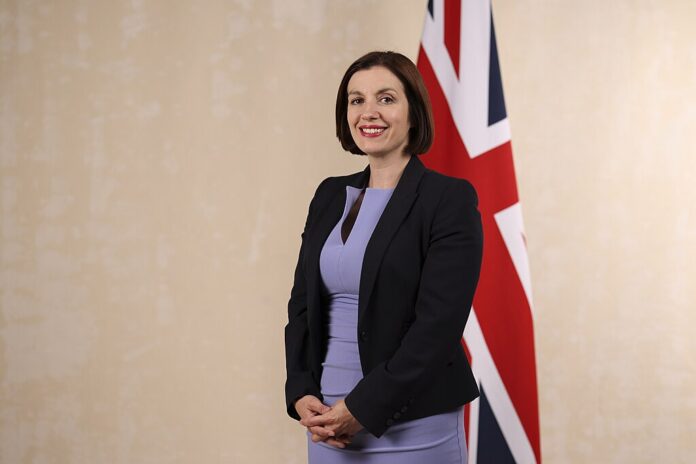Newly appointed education secretary Bridget Phillipson vows collaboration with school staff to address major educational issues in the UK
In her inaugural address to school staff, Bridget Phillipson, the newly appointed Education Secretary under the Labour government, emphasized the daunting challenges facing the education sector in the United Kingdom. Phillipson’s message was clear: there are no quick fixes to the significant issues plaguing education today. She acknowledged the pressing concerns such as teacher pay, school funding, deteriorating infrastructure, and mounting deficits in Special Educational Needs and Disabilities (SEND) support.
Phillipson, who grew up in the Northeast of England and benefited from a strong public education system, highlighted the personal significance of her new role. She expressed gratitude to her own teachers who instilled in her a love for learning and a belief in the transformative power of education. Her appointment comes at a critical juncture, amidst widespread calls for educational reform and increased support for educators grappling with myriad challenges.
Embed from Getty ImagesThe Education Secretary’s address underscored her commitment to rebuilding trust and collaboration between the government and education professionals. Phillipson pledged to listen to educators’ experiences and insights, emphasizing the importance of their expertise in shaping effective policy responses. She recognized the complex interplay of issues such as child poverty, budget constraints, high workloads, and strained mental health services within schools, all of which exacerbate the difficulties faced by teachers and school staff on a daily basis.
Phillipson outlined ambitious plans for the future, including the recruitment of thousands of new teachers, improvements in post-16 education strategies, and enhancements in SEND provision. Her vision extends beyond immediate challenges, aiming to create a fairer society where every child has equal access to quality education and opportunities for success.
Analysis:
Political: Bridget Phillipson’s appointment as Education Secretary is politically significant, signalling the Labour government’s prioritization of education as a key policy area. Her emphasis on collaboration and her acknowledgement of systemic challenges aim to garner support from educators and stakeholders while navigating complex political landscapes.
Social: The social impact of Phillipson’s agenda is profound, aiming to reduce educational disparities and improve life chances for all children. By addressing issues like child poverty and inadequate school funding, she seeks to create a more inclusive educational environment that supports the holistic development of students and strengthens societal cohesion.
Economic: Economically, Phillipson’s initiatives, such as investing in teacher recruitment and upgrading school infrastructure, are poised to stimulate local economies and enhance workforce productivity. These investments are crucial for sustaining long-term economic growth and competitiveness, ensuring a skilled workforce for the future.
Gender: While gender-specific policies were not explicitly outlined, Phillipson’s commitment to inclusive education indirectly supports gender equality by advocating for equal opportunities for all students, regardless of gender, to thrive academically and professionally.
Racial: In terms of racial impact, Phillipson’s policies aim to address educational disparities that disproportionately affect minority communities. By promoting equitable access to resources and support services, she seeks to dismantle systemic barriers that hinder educational attainment among marginalized racial groups.
